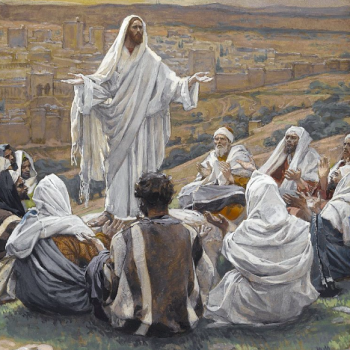Likewise, this desire for attention is what prompted John Piper to read Taylor's post and then curtly share it with his thousands of followers in a tweet that many have interpreted as a kind of evangelical excommunication. These are the two most visible offenders, but the countless numbers who felt the need to immediately comment and criticize are also responsible. And, in this light, I must count myself as a sometimes-offender. I restrained the urge on this occasion, mostly because it was a Saturday and I was showing my family around New York City, but had it been a weekday, when I'm typically sitting at the ready at my keyboard, I probably wouldn't have been able to stop myself from weighing in.
In his timeless essay "Corn-Pone Opinions," Mark Twain discussed this phenomenon a hundred years before the internet. The gist of his argument is that there is no original thought, that everything everyone believes comes from Public Opinion. Thus illuminating the line he hears from a slave preacher: "You tell me whar a man gits his corn pone, en I'll tell you what his 'pinions is." Toward the end of the essay, Twain is at his finest. "Broadly speaking, there are none but corn-pone opinions. And broadly speaking, corn-pone stands for self-approval. Self-approval is acquired mainly from the approval of other people. The result is conformity."
The human condition has not changed. Desire for the approval of others is precisely what drives a blogger to rush to comment first in order to gain the most attention. In our media-saturated atmosphere, where everything registers at around the same cacophonous volume, the way to be heard is not to shout the loudest, but to speak first and say the most shocking thing.
In a funny bit of timing, just a day before Justin Taylor launched his attack on Bell, Christianity Today, which Taylor presumably reads, posted an essay by Christopher B. Hays, entitled "The Folly of Answering Fools." The "Fools" to whom he refers are those outside Christianity who seek to shock and outrage Christians, and especially evangelicals, as the best way to draw attention. I'm not sure who the "Fools" are in the Rob Bell situation—time will tell—but Hays is onto something when he writes, "In our pop-cultural world, getting noticed is by far the most difficult feat . . . One easy way for an author to break out is to offend Christians." Sadly, Christian writers know this too. Bell's publisher knows it, Taylor knows it, Piper knows it, and, apparently, my fellow Patheos writer Francis Beckwith felt the need to take a swipe as well—chiming in with an irrelevant knock on the "Emergent Church," of which Bell has never been a member. And yes, I also have exploited this tactic in the past for a few extra hits or a page full of retweets.
I'm not sure what the answer to the problem is. I'd like to issue a plea that we all bring the noise down several notches, but as idealistic as I can be, I know this won't happen easily. What I can do is my own part. I can make an effort to hold my tongue longer and consider more thoroughly. Maybe what we need are fewer tweets and more Long Reads, less reaction and more consideration, less malice and more grace.





